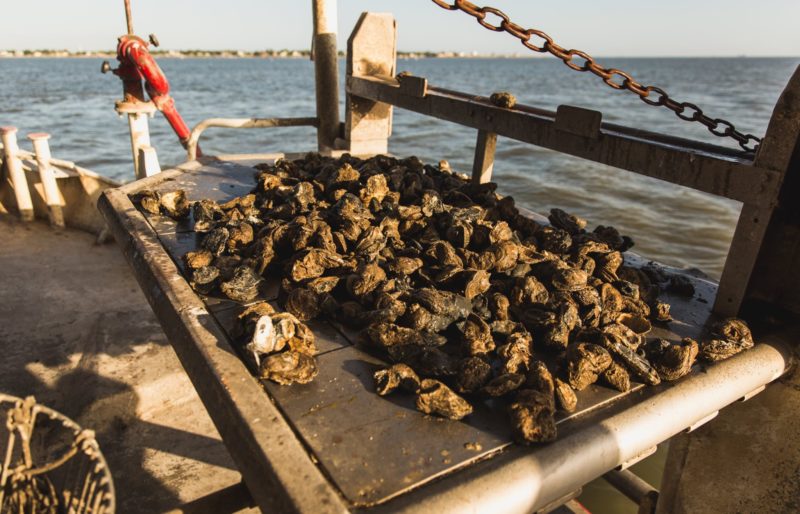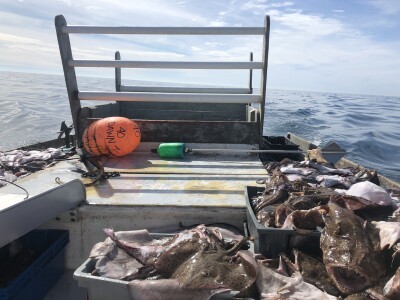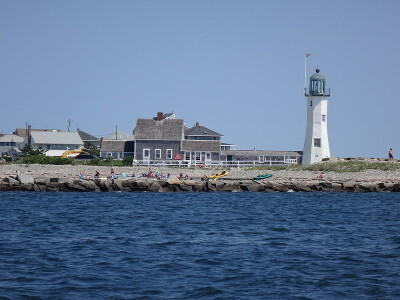When Hurricane Harvey swept through the Gulf of Mexico last September, oyster harvesters throughout the gulf were worried they had lost their entire crop. Stocks suffered, but that hasn’t shaken an industry that’s grown used to working against the weather.
“We got a good harvest this season from crops we had planted during previous summers,” said oysterman Raz Halili of Prestige Oysters, which harvests and tends to privately leased beds in Texas and Louisiana. “Harvey was a bit of a setback but oysters are spawning. It’s going well.”
Early this summer, Prestige Oysters dropped more than 20,000 pounds of crushed Kentucky limestone to repair and build new beds on their grounds, an example of recovery and sustainability efforts taking place throughout the gulf.
A hot summer in Texas did lead to portions of Galveston Bay’s crop being lost to dermo disease, however.
In Mississippi, Ryan Bradley, executive director of Mississippi Commercial Fisheries United, hopes a large-scale oyster shell recycling program will be announced in the state this year as economic damage payments from the Deepwater Horizon oil spill start rolling in.
“It’s nothing new. It’s been done all over. But we’ve never had a large project in Mississippi,” he said. In September, oystermen were preparing for the third annual Gulf Coast Oyster Cook Off & Festival — all of the shells were set to be recycled at the end of the two-day event.
Recycled shells are usually left out in the hot Southern sun for months to cure, getting bleached free of bacteria, before they are seeded with oyster spat and brought to reefs in need or to build new reefs.
Hurricane damage means dealers are faced with product shortages. But demand has stayed steady.
“Prices, from a wholesale standpoint, fluctuate from 35 cents to 38 cents, depending on the market,” said Halili.
If the next few years live up to post-hurricane seasons of the past, the industry might be in for a boom. “We’ll keep trucking along, said Halili. “We’re healthy right now, but business should be really good in 2 to 3 years, pending any crazy weather.”







